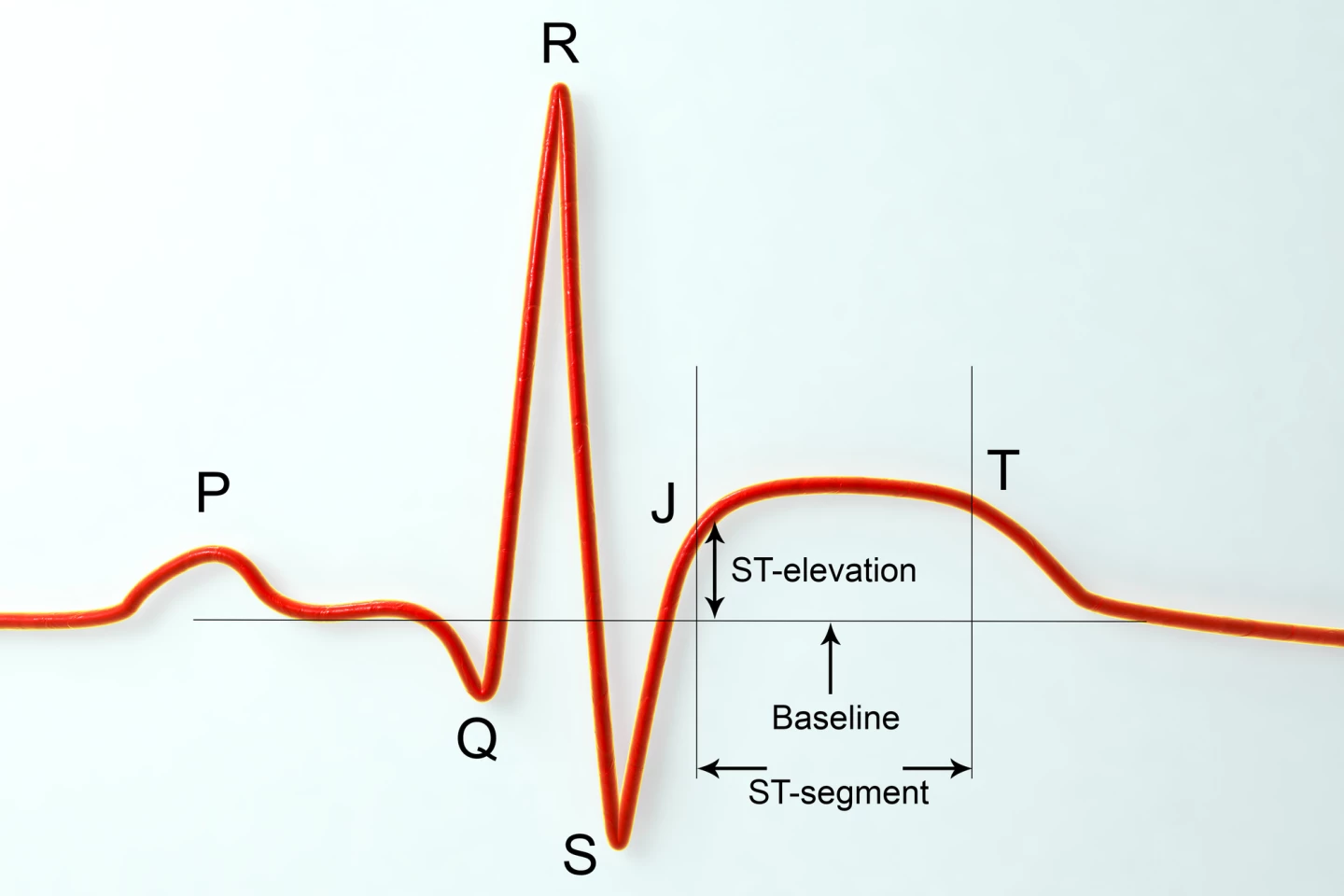As if Mondays weren’t bad enough: the weekend’s over, and, for many of us, it’s back to work. Now, according to research presented at this year’s British Cardiovascular Society Conference, the most life-threatening type of heart attack is more likely to occur on a Monday than any other day of the week.
An ST-segment elevation myocardial infarction, STEMI for short, occurs when a major artery supplying the heart muscle with blood becomes completely blocked by plaque or a clot. The blockage causes the heart muscle to die, which means the heart can’t pump blood around the body effectively.
STEMI gets its name from the ST-segment elevation seen on an electrocardiogram (ECG), which indicates that the conduction of electrical impulses in the heart, particularly in the lower chambers (ventricles), has changed. STEMI is more serious and has a greater risk of serious complications and death than non-STEMI types of heart attack.

Researchers at the Belfast Health and Social Care Trust and the Royal College of Surgeons in Ireland analyzed data from 10,528 patients across Ireland that had been admitted to hospital with STEMI between 2013 and 2018.
They found that the rates of STEMI were highest on a Monday and that the rates of STEMI that occurred on a Sunday were also higher than expected. They dubbed the phenomenon “Blue Monday” but are none the wiser as to why it occurs.
“We’ve found a strong statistical correlation between the start of the working week and the incidence of STEMI,” said Jack Laffan, who led the research at the Belfast Health and Social Care Trust. “This has been described before but remains a curiosity.”
The researchers think it may have something to do with the body’s circadian rhythm – physical, mental, and behavioral changes that follow a 24-hour cycle, aka as the body’s ‘internal clock.’ Circadian rhythms guide sleeping and eating patterns, hormones and body temperature, which is why it’s important to maintain a daily routine, including on the weekend.
“The cause is likely multifactorial, however, based on what we know from previous studies, it is reasonable to presume a circadian element.”
The findings align with a 2005 review of 28 previous studies covering 16 countries and more than 1.6 million cardiac events. That review suggested that “Blue Monday” might be associated with alcohol consumption, but it couldn’t be proven as a contributing factor.
Or it might come down to the stress of returning to work after the weekend. A 2020 study found that employees reported lower levels of job satisfaction and were more susceptible to work stress at the beginning of the working week. It's well-known that the body’s physiological response to stress can increase the risk of high blood pressure, heart attack and stroke.
The researchers say that further research is needed to investigate the causes of “Blue Monday."
“This study adds to evidence around the timing of particularly serious heart attacks, but we now need to unpick what it is about certain days of the week that makes them more likely,” said Nilesh Samani, the British Heart Foundation’s Medical Director. “Doing so could help doctors better understand this deadly condition so we can save more lives in future.”
The research was presented at the 2023 British Cardiovascular Society Conference in Manchester, England.
Source: British Heart Foundation






